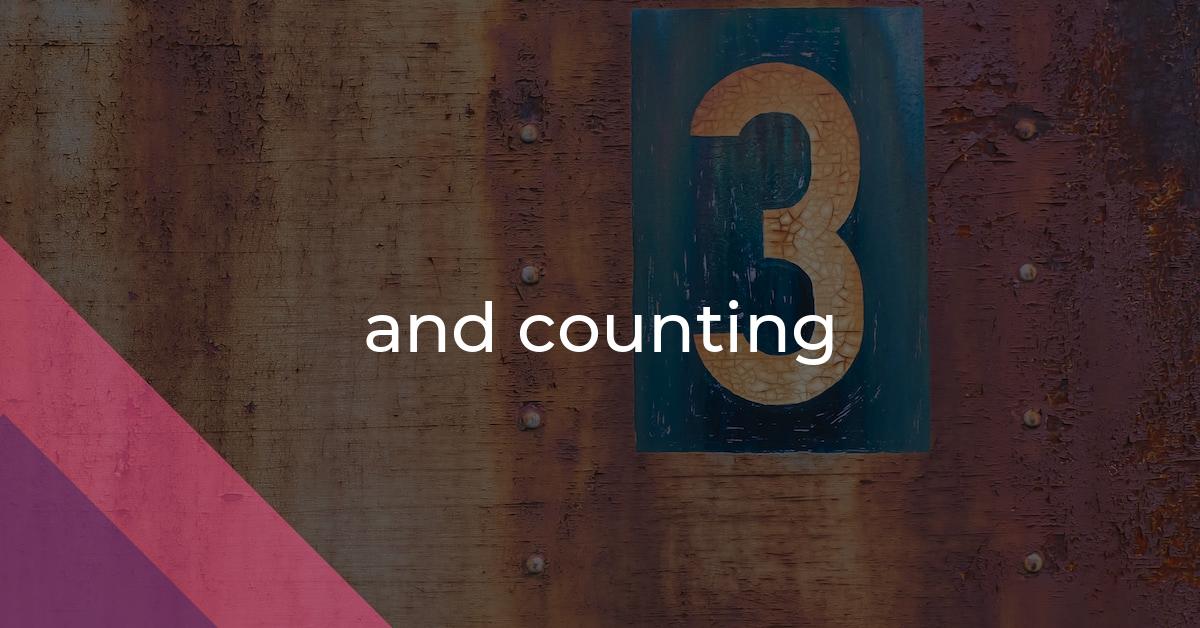and counting: Idiom Meaning and Origin
What does ‘and counting’ mean?
The idiom "and counting" is used to indicate that a particular number is continuing to increase or grow, and that the final total is not yet known or cannot yet be determined.

Idiom Explorer
An idiom that means the final or last gathering or collection of something or someone, often used to express the end or conclusion of a particular event, activity, or period of time.
The idiom "keep on" means to continue doing something without stopping or to persist in doing something despite difficulties or obstacles.
The idiom "it figures" means that something is not surprising or unexpected, usually because it is consistent with a person's character or a situation's nature.
The idiom "have one's number on it" means that something is specifically intended or designed for someone. It implies a personal connection or relevance to an individual.
The idiom "grand total" means the final sum or amount, usually of a series of numbers or quantities, representing the total or overall result.
The idiom "good and" is used as an intensifier to indicate something is very much or completely in a certain state or condition.
The idiom "ever after" is used to describe a state or condition that continues indefinitely, often referring to a happily ever after ending or a lasting outcome or consequence.
The idiom "decimal dozen" refers to a group of 10 items or people, rather than the traditional dozen of 12. It is used to describe a smaller or incomplete quantity, often in a humorous or exaggerated way.
The idiom "crunch numbers" means to perform calculations or analyze data, usually in a systematic and rigorous manner, often with the goal of obtaining specific results or making informed decisions.
Unending Enumeration
The idiom "and counting" is commonly used in the English language. It is derived from the verb "to count" and is used to indicate that a number or situation is increasing and that it is continuing to do so. This idiom is often used in the context of counting or tracking numbers or events, especially ones that are significant or notable.
Counting is an essential skill in mathematics. It allows us to quantify and measure things, and it forms the basis of many calculations and numerical operations. The idiom "and counting" reflects the importance of counting and acknowledges that it is an ongoing process. It signifies that there is more to come, that the numbers or events being counted are still increasing.
The beauty of the idiom "and counting" lies in its flexibility. It can be used in different grammatical constructions, such as "X years and counting" or "X days and counting." This versatility allows it to be applied to various situations and enables individuals to convey the concept of continuous growth or progression.
Interesting related idioms include "grand total" and "and change." These idioms are associated with the concept of counting and can be used in conjunction with the idiom "and counting" to provide additional emphasis or context.
"Grand total" is an idiom used to refer to the final sum or total of a group of numbers or objects that have been counted. It is often used to signify the completion of a counting process or the culmination of a series of events. For example, if someone is counting the number of books they have read in a year and they say, "50 books and counting," the inclusion of the phrase "grand total" could be used to indicate that 50 is the final sum, and no more books will be added to the count.
"And change" is another idiom related to counting. It is used to indicate that the number being referenced is not exact, but rather slightly more or less than the stated value. The inclusion of "and change" after a specific number implies that there are additional units or parts that are not included in the exact count. For example, if someone says, "I have been working here for 5 years and change," they are suggesting that their tenure is slightly more than 5 years, but not a significant amount more.
The idiom "and counting" is used both literally and figuratively in various contexts. It can be applied to numerical values, such as the number of people attending an event, the number of days since an occurrence, or the length of time until a deadline. Additionally, it is also used metaphorically to depict the ongoing progression or growth of a situation or concept. For example, if someone says, "This company has been on an upward trajectory for 10 years and counting," they are expressing the continuous success and progress of the company over the past decade.
The usage of the idiom "and counting" is not limited to a specific region or dialect of English. It is widely used in both spoken and written English, and it can be found in various formal and informal settings. Whether in a business meeting, a casual conversation, or a literary work, this idiom is a versatile and commonly understood expression.
The widespread usage of the idiom "and counting" throughout the English language reflects its status as a well-established phrase. It has become ingrained in the lexicon and can be found in numerous literary and media sources. Its prevalence is a testament to its usefulness and effectiveness in conveying the idea of continuous growth, progress, or accumulation.
The idiom "and counting" is a versatile and widely used expression in the English language. It signifies the ongoing increase or continuation of a number or situation and can be applied in various grammatical constructions. Its relation to idioms such as "grand total" and "and change" provides additional nuance and context. Whether in everyday conversations or formal writing, the idiom "and counting" adds clarity, coherence, and effectiveness to the English language.
Example usage
Here are three examples of how the idiom "and counting" can be used in a sentence:
- I've eaten three slices of pizza, and counting.
- She has won five consecutive matches, and counting.
- They have been dating for three years, and counting.
The idiom "and counting" is often used to indicate that a particular action or event is ongoing or continuing, and is expected to increase in number.
More "Quantitative" idioms



